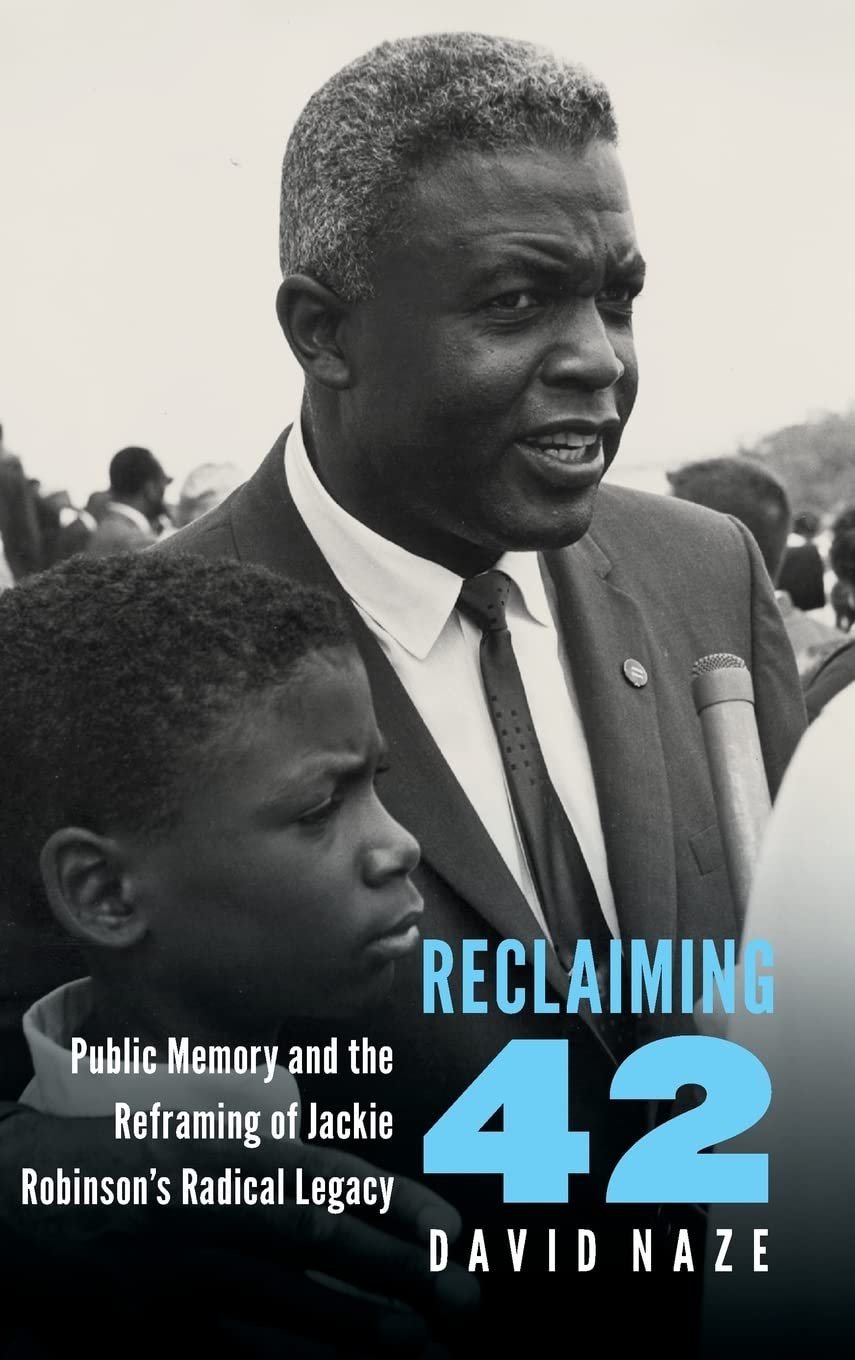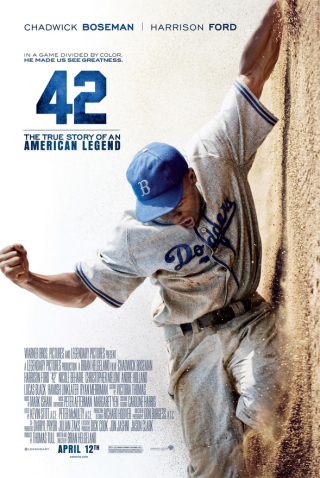Michael Arria: Before we get to the mythmaking, I wanted to talk about the parts of Robinson’s legacy that are generally scrubbed from the narrative. His story is often presented in an apolitical way, and sometimes he’s even presented as a conservative because he agreed to testify in 1949 before the red-baiting House Committee on Un-American Activities (he used the speech to decry Jim Crow) and his brief flirtation with Richard Nixon’s 1960 presidential campaign (he distrusted John F. Kennedy on civil rights).
David Naze: When I came to this subject about twenty years ago, my understanding of Robinson was the mainstream narrative. I have come to argue it’s very limited — important and significant historically, but narrow in terms of how we think about Robinson’s legacy.
The story we hear is that he was the first black baseball player in Major League Baseball and that he broke the color barrier in 1947. He’s largely remembered as a baseball player. However, his legacy and his impact go far beyond baseball. Jackie Robinson was a forerunner to the modern American civil rights movement. He was doing a lot of significant things prior to 1947, when he was in the army. Then he comes to baseball and breaks the color barrier.
We also don’t really remember him as a postbaseball figure. What he did from 1957 to his death in 1972 gets eliminated from his legacy. He was a strong political advocate. He contributed immensely to the civil rights movement. This included writing a regular column in the New York Amsterdam News, in which he and Malcolm X famously exchanged heated sentiments about which direction the black community should be headed.
He wrote extensive and prolific civil rights letters to allies, adversaries, politicians, and so on. When he served as an executive at Chock Full o’Nuts, he included in his contract that he could work as extensively as he wanted on civil rights efforts.
Michael Arria: Can you talk about this image of him as a gentle, quiet hero who gracefully endured racist barbs?
David Naze: Everything you’re asking about connects to the whitewashing of his legacy, and I think the primary example of that whitewashing is Major League Baseball’s decision to create Jackie Robinson Day in 2004, which it observes every year on April 15.
On the one hand, it’s great. Of course he deserves to be recognized. But every year it’s the same rerun of Major League Baseball holding itself up as the tolerator of racial integration. I refer to Robinson’s “radical legacy” because I believe, in the context of 1947 and the stuff he was doing for the last twenty-five years of his life, he was a radical by the strictest definition of the term. He was doing things outside the mainstream.

